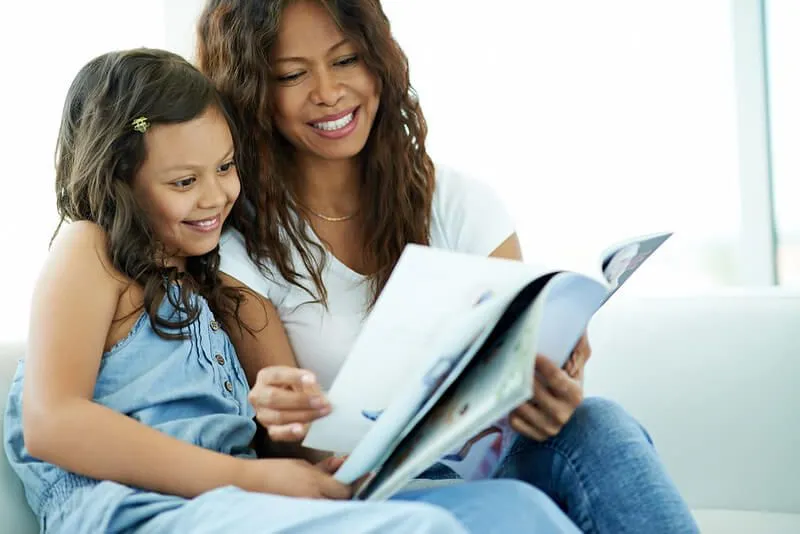FOR AGES 7 YEARS TO 11 YEARS
If you're a parent who wants to consolidate your K2S child's understanding of noun phrases, you're in the right place. Our simple guide is a great home learning resource you can use for primary school-aged kids, and hopefully, you'll learn something along the way, too.
Children in Year 2 and above at primary school need to understand what noun phrases are, so we've put together the following lesson to help you figure them out, and stop scratching your head as a parent.
You might already know that nouns are naming words. They are used to describe a person, thing or place. A simple example of a noun would be 'dog' or 'car'. (Proper nouns are specific, named examples of these things, so if your dog is called Buster, then Buster is the proper noun.)
A noun phrase is a short sequence of one or more word that includes a noun and a modifier, such as 'a' or 'the'. A phrase won't contain a verb, however.
A simple noun phrase might be 'the cat', 'a man', 'this table' or 'my brother'.
Your primary school child will need to understand how to use expanded noun phrases, particularly those in Year 4 and above.
Expanded noun phrases are ones that contain additional describing words, or adjectives.
So if your noun phrase is 'the cat', then an expanded phrase might be 'the brown cat'. Here, 'cat' is the noun and 'brown' is the describing word.
Expanded noun phrases can also contain more than one describing word, which will be separated by a comma.
For example: 'the big, brown, furry cat' or 'the sad, small, white mouse.'
In simple terms, expanded noun phrases give you a bit more information about the noun. A good way to think of them is as a way of making a sentence more interesting to read, and for students to write.

Ask your child to try and come up with some examples of expanded noun phrases in a sentence.
Also, get them to think carefully about the adjectives they are writing. Ask them to search for words that convey meaning in a simple, precise way, and avoid repetition. For example, the 'grey, shy mouse' gives us valuable extra information. But if we write a sentence about a 'small, tiny mouse', small and tiny mean the same thing, and most of us already know that mice are small.
A more complex noun phrase might be 'the big, old house on the corner'. 'On the corner' offers extra information, describing the position of the house. Another more complex noun phrase might be 'the woman wearing the green hat'. 'Wearing the green hat' is an example of a 'prepositional phrase'.
Looking for ways of teaching primary kids exactly what an expanded noun phrase is?
You can give your kids a helping hand by making learning more fun and interesting for them in these ways:
Underline:
Write out a series of sentences and ask your child to underline the expanded noun phrase in them using a bright marker.
For example:
The red parrot flew through the trees.
Lizzie reached for the sour sweets on the top shelf.
At the bottom of the ocean, the yellow octopus hid in a shipwreck.
Use Pictures:

You could also show your child some pictures cut out from magazines, and ask them to write a sentence about what they can see, eg a blue fish, a happy dog. Perhaps they could come up with a whole storyline, too.
Mix And Match:
Another option is to write down different words on strips of card and cut them up, then ask your primary-aged child to arrange them in sentences. Get them to search for different kinds of describing words, eg size, colour, mood, numbers and so on. You can also use this exercise to help expand your primary-aged child's vocabulary, and test their spelling skills, too.
If the sentence includes commas to separate a list of adjectives, don't forget to cut these out as well.

Sometimes expanded noun phrases are referred to as expanding noun phrases, but the correct term is the former.
What Year 2 and Year 3 primary school-aged children are expected to understand is different to Year 4 children. Ask your primary school year teacher to explain the expectations, if you are not sure. They may have additional resources they can offer to help you.
Read The Disclaimer
At Kidadl we pride ourselves on offering families original ideas to make the most of time spent together at home or out and about, wherever you are in the world. We strive to recommend the very best things that are suggested by our community and are things we would do ourselves - our aim is to be the trusted friend to parents.
We try our very best, but cannot guarantee perfection. We will always aim to give you accurate information at the date of publication - however, information does change, so it’s important you do your own research, double-check and make the decision that is right for your family.
Kidadl provides inspiration to entertain and educate your children. We recognise that not all activities and ideas are appropriate and suitable for all children and families or in all circumstances. Our recommended activities are based on age but these are a guide. We recommend that these ideas are used as inspiration, that ideas are undertaken with appropriate adult supervision, and that each adult uses their own discretion and knowledge of their children to consider the safety and suitability.
Kidadl cannot accept liability for the execution of these ideas, and parental supervision is advised at all times, as safety is paramount. Anyone using the information provided by Kidadl does so at their own risk and we can not accept liability if things go wrong.
Kidadl is independent and to make our service free to you the reader we are supported by advertising.
We hope you love our recommendations for products and services! What we suggest is selected independently by the Kidadl team. If you purchase using the buy now button we may earn a small commission. This does not influence our choices. Please note: prices are correct and items are available at the time the article was published.
Kidadl has a number of affiliate partners that we work with including Amazon. Please note that Kidadl is a participant in the Amazon Services LLC Associates Program, an affiliate advertising program designed to provide a means for sites to earn advertising fees by advertising and linking to amazon.
We also link to other websites, but are not responsible for their content.
Was this article helpful?



Browse Category



We’ll send you tons of inspiration to help you find a hidden gem in your local area or plan a big day out.



Check your inbox for your latest news from us. You have subscribed to:
Remember that you can always manage your preferences or unsubscribe through the link at the foot of each newsletter.